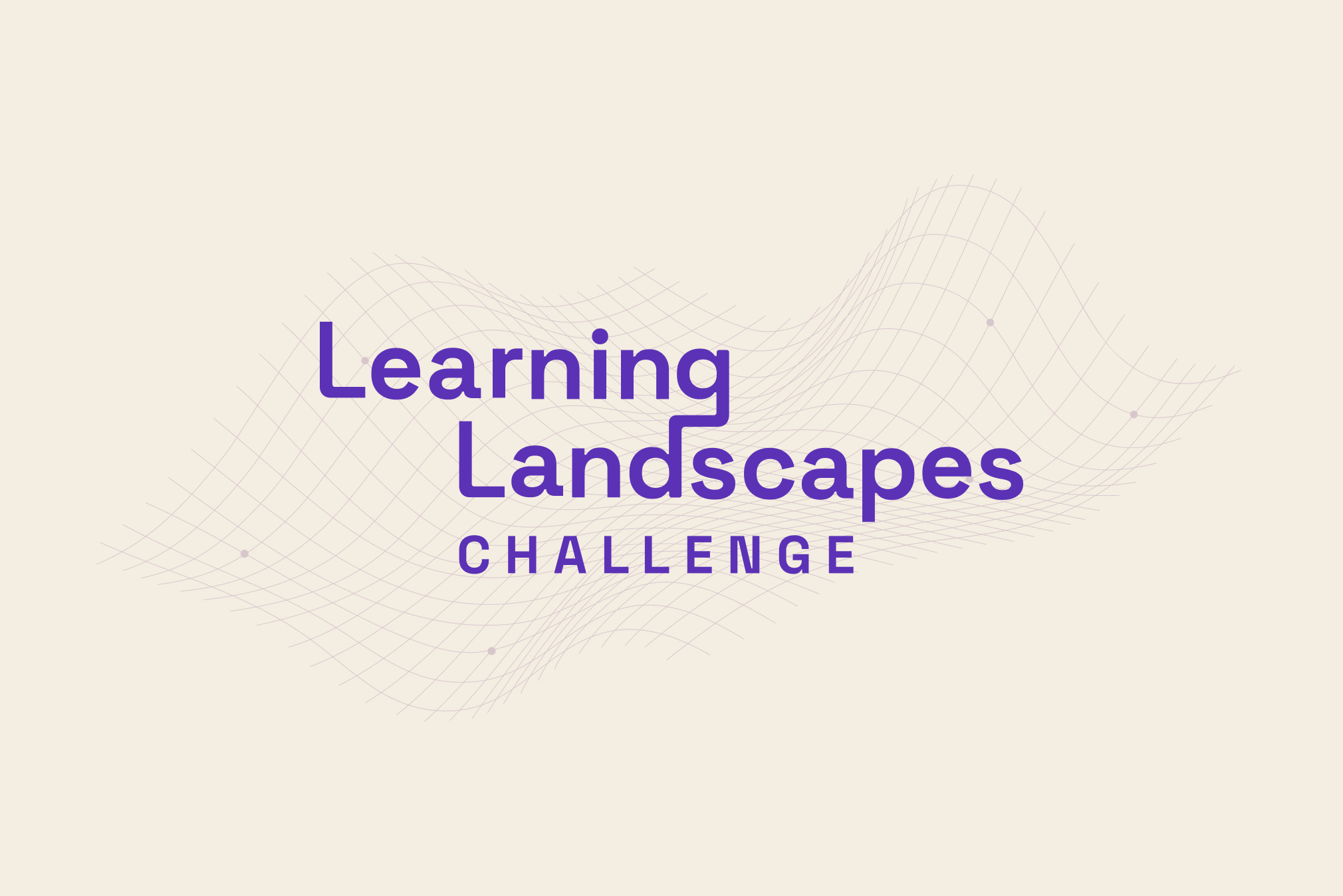Announcing the Phase 2 winners of the Learning Landscapes Challenge.
Education is evolving to include more personalized learning experiences that seamlessly blend traditional classrooms with virtual and community-based environments. In this expanded learning landscape, it is even more important that educational resources work in harmony. But bridging the gaps between learning environments to connect learning opportunities for students requires thoughtful infrastructure and dedicated investment.
This month, Siegel Family Endowment and the Walton Family Foundation announced five Phase 2 winners of the Learning Landscapes Challenge, a $2.2 million competition to design and build future-ready K-12 education environments. These winners emerged from an exceptional cohort of 40 Phase 2 accelerator teams with transformative visions for K-12 educational infrastructure. Whether creating a streamlined virtual pipeline to connect rural and underserved students to healthcare careers or designing an integrated data system to provide proactive support and intervention for students living in shelters, the five winning teams propose innovative solutions to connect learning experiences, particularly for students who have historically been left behind.
The Phase 2 winners will each receive $200,000 and advance to the Phase 3 incubator. A judging panel selected the following five Phase 2 winners following a two-step judging process:
- Empower Schools — This Multi-Sector Collaboration aims to increase wellbeing and economic growth for individuals and communities throughout Indiana. By connecting healthcare training facilities, virtual classrooms, and industry partnerships, this team, led by Empower Schools, is creating direct pathways and expanding opportunities for K-12 students — especially from rural, low-income, and Hispanic backgrounds — to enter high-wage healthcare careers.
- Joy Education Foundation — This Virginia-based pop-up reading hub aims to boost literacy confidence among students living in high-poverty, low-literacy communities. By partnering with community hosts, repurposing buses, and using AI to match students with tailored tutoring, Joy Education Foundation’s mobile and virtual reading clinics seek to foster a love for lifelong learning.
- New Visions for Public Schools — This system for coordinating student data and wraparound services aims to decrease absenteeism and improve academic and life outcomes for youth living in New York City shelters. By integrating parent-school communication, AI-driven student needs monitoring, and check-ins with trusted adults, New Visions for Public Schools, in collaboration with New York City Public Schools and other city agencies, is developing a holistic support model to drive student success.
- Perkins School for the Blind — This integrated transition program aims to develop academic and pre-employment competencies among high school students across the country who are blind or visually impaired. By connecting a virtual college success program, in-community vocational exploration, and a residential learning space, Perkins School for the Blind is integrating the structures and resources needed to support students’ transitions to independence.
- Xchange Chicago, Inc. — This experiential learning model is bridging the gap between classroom education and tech careers by providing opportunities for students to acquire essential industry skills. By integrating an in-person innovation hub on the Comer Education Campus with an IT delivery center that provides local apprenticeships, Xchange Chicago is leveraging tailored project- and work-based learning experiences to create accessible pathways into rewarding tech careers.
The Phase 3 incubator will provide highly tailored support over six-months as the teams move from planning to prototyping and implementation. Beginning with an in-person boot camp in January 2025, the incubator will provide the teams with technical assistance to prototype and implement their concepts, build sustainable funding streams, and create roadmaps to support scalability.
The Phase 3 teams will also need to provide early evidence of potential impact through the measurement of leading indicators, including a plan for rigorous outcome measurement and iteration based on those learnings. The incubator will culminate in summer 2025 with a live Demo Day, at which teams will present their solutions to education leaders, potential funders, and implementation partners. Up to two grand-prize winners will receive $500,000 each to support implementation of their solutions at scale.

